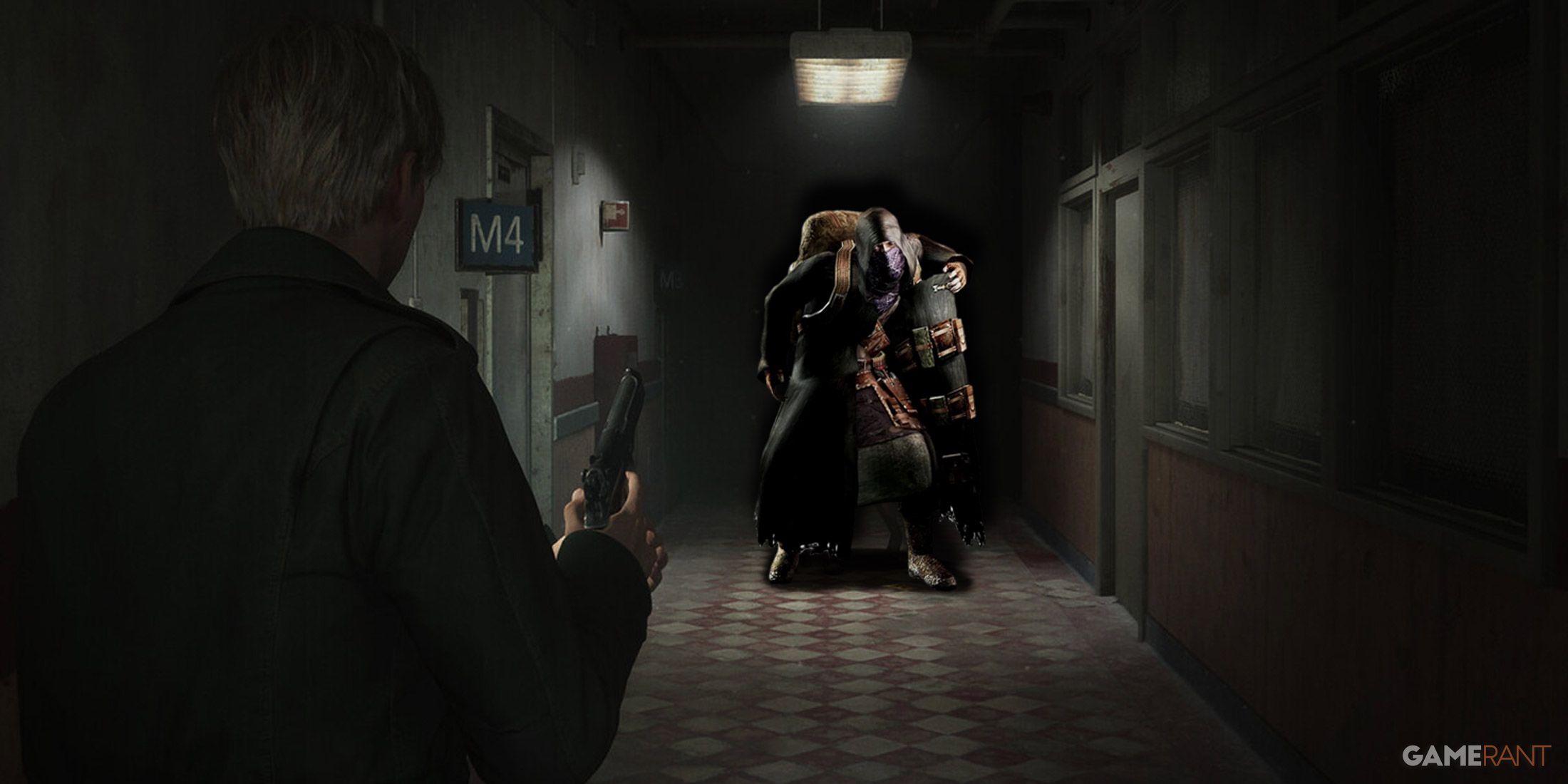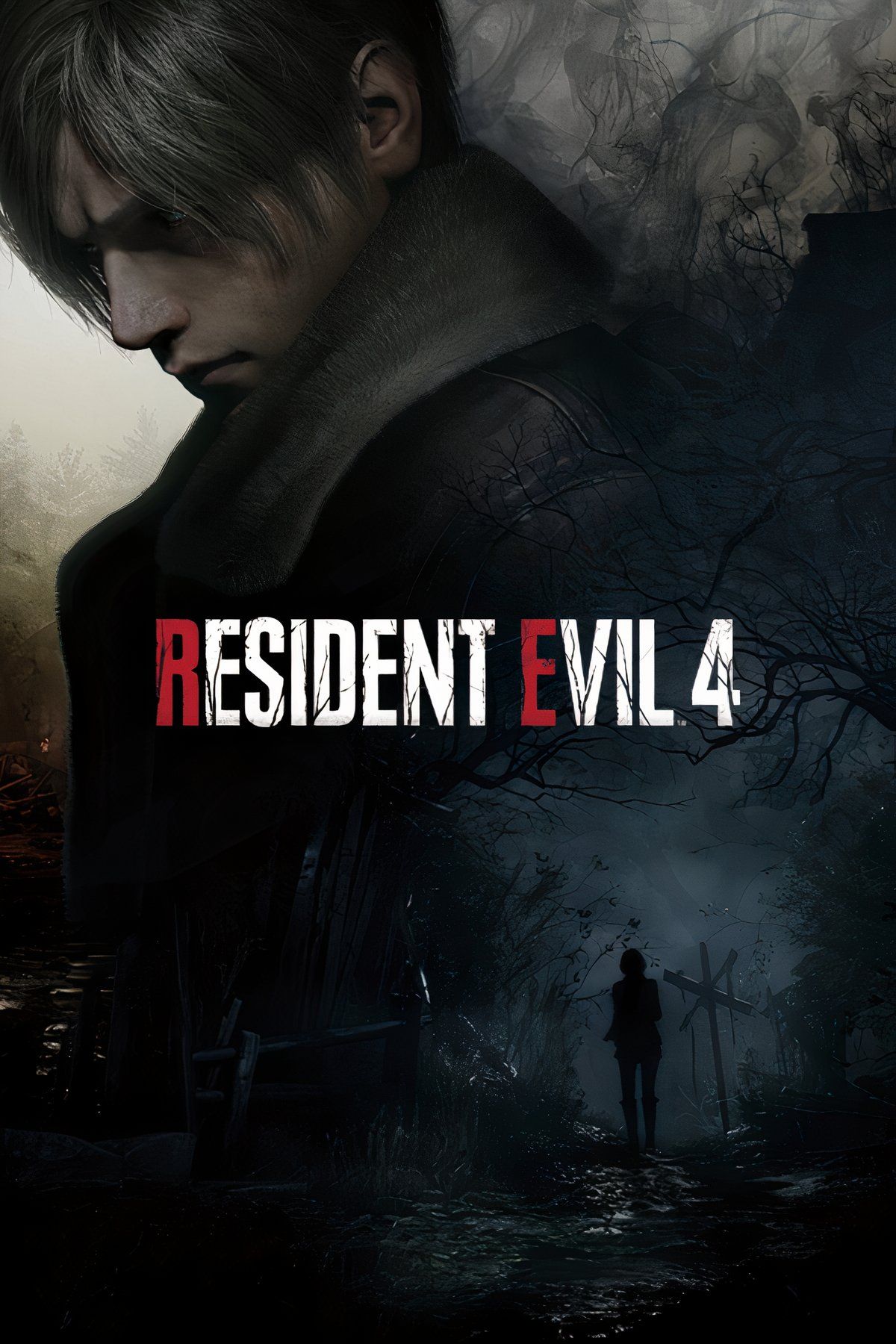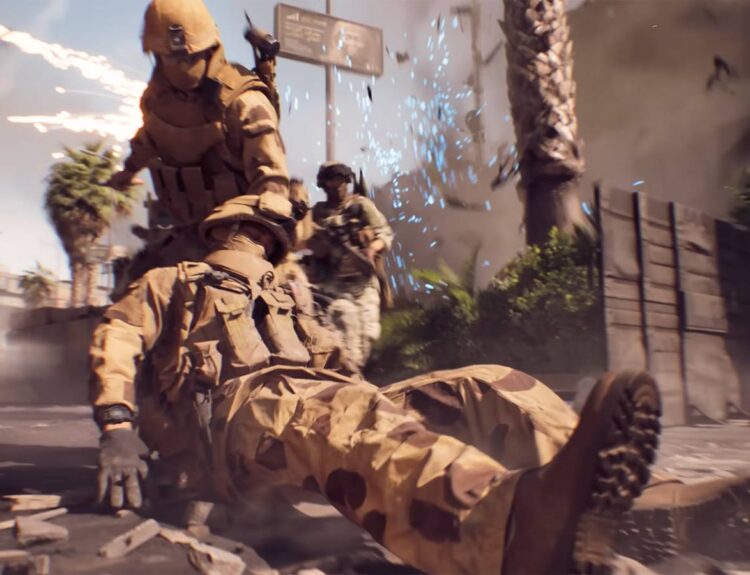The Resident Evil franchise is still chugging along after all these years, though it has undergone a number of major permutations, eventually settling into two steady streams: new first-person releases, and high-budget, transformative remakes. These different streams each have unique strengths, with the Resident Evil 4 remake arguably having the best combat in the series, perhaps even of any survival horror game. Games, like Resident Evil Village, succeed in other areas, but they all excel in terms of raw, satisfying gameplay.
Contrasting these modern Resident Evil games with the recent Silent Hill 2 remake reveals interesting mechanical choices on Capcom’s part. The Silent Hill 2 remake, like the original, is more focused on atmosphere, storytelling, and puzzle-solving than combat, although it does take notable strides toward making enemy encounters more engaging and, for better or worse, “fun.” Still, these fights are nothing at all like the massive, expressive, and versatile encounters seen in the likes of Resident Evil 4, which is by design, of course, but it does make the strengths of Capcom’s survival horror series more pronounced. Targeting one repeated Resident Evil feature could be the key to maintaining and growing these strengths down the road.
Related
If Resident Evil Ever Plans to Retire Any Franchise Icons, It Should Consider Changing One Story Approach
When it comes to the biggest characters in the Resident Evil franchise, taking a bold approach to send-offs may be the best route.
Silent Hill 2’s Lack of a Merchant Highlights the Feature’s Impact in Resident Evil
The Fundamental Differences Between Resident Evil and Silent Hill
It’s not too bold to say that Silent Hill has pushed the survival horror genre forward through its conceptual and narrative ingenuity. The first three Silent Hills set a new gold standard for sophisticated and mature storytelling in games, showing how the medium can be leveraged to evoke feelings that film and literature simply cannot. The series accomplished this through strong writing, yes, but also through impeccable environmental storytelling, sound design, and the clever, subtle integration of player choice.
But Resident Evil has always been the franchise that pushed the envelope on the gameplay front. Initially conceptualized as a response to the early Resident Evil games, the first few Silent Hill titles adhered to a very similar gameplay formula as its inspirations. Mechanical staples of Resident Evil 1, 2, and 3, like loose metroidvania progression, a fixed camera angle, and item-based puzzle-solving all served as the foundation for Silent Hill‘s gameplay.
Resident Evil went on to effectively revolutionize the third-person-shooter genre with Resident Evil 4, which would serve to inspire countless iconic franchises, including Dead Space. The game doubles down on action elements, offering a sprawling arsenal of weapons to choose from, an in-game economy—the series’ first up til that point—and a robust, flexible upgrade system via the Merchant. These new gameplay facets would be redoubled and expanded upon in future entries, like Resident Evil 5 and Resident Evil Village, while Silent Hill‘s gameplay would remain mostly static between new releases. Otherwise, the series would take detours into fundamentally experimental and distinct mechanical frameworks, like in Silent Hill: Shattered Memories. This isn’t to say that one franchise is necessarily better than the other, but the design choices introduced in Resident Evil 4 definitely led to a more gratifying combat experience than the more tailored gameplay of Silent Hill.
Resident Evil 9 Can Build On Series Strengths With Another Merchant
Nowhere is the gameplay discrepancy between Silent Hill and Resident Evil more apparent than through the latter’s in-game economy. In games like Resident Evil 4 and Resident Evil Village, Merchant and Duke serve as powerful avenues for player progression and experimentation. Through these systems, Resident Evil players are able to invest in specific playstyles, growing stronger while nurturing their preferred strategies. This increases replay value and expression in a way that isn’t reflected in Silent Hill‘s approach to game design, emphasizing the potential benefits of future Resident Evil games maintaining the merchant system.
Gaming Hub
Game online adalah jenis permainan video yang dimainkan melalui jaringan internet. Game ini memungkinkan pemain untuk berinteraksi dengan pemain lain secara real-time, baik itu dalam bentuk kerja sama, kompetisi, atau eksplorasi dunia virtual bersama-sama.





